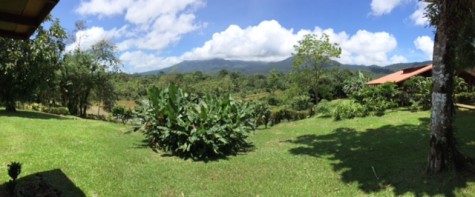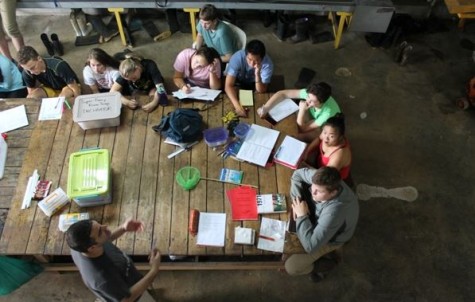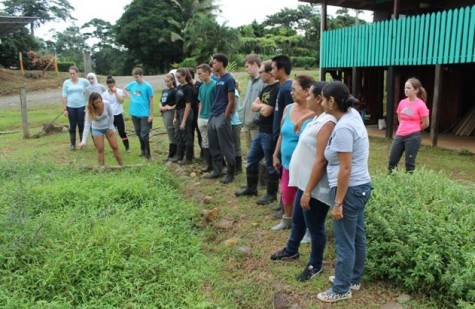Studies in Paradise: Upper School students research leafcutter ants over break
Editor-in-Chief, Boraan Abdulkarim, recounts her time in Costa Rica for the SPA facilitated research trip.
September 2, 2015
Digging up ant colonies, measuring Gmelina leaf fragments, horseback riding up a volcano, and lots of chocolate – these are a few of the things we encountered during the St. Paul Academy and Summit School research trip to Costa Rica, and clearly, they were not limited to science.
On Aug. 10, I woke up to a 2:00 AM alarm , as did 15 other St. Paul Academy and Summit School students, and drove straight to the Minneapolis-St. Paul airport. There, we met Upper School science teachers Beth Seibel-Hunt and Ned Heckman in addition to John Doleman, founder of Seeds of Change, the organization through which the trip was organized. The smiles on our faces could have been attributable to adrenaline, sleep deprivation, or sheer excitement for the upcoming nine-day trip.
It was probably a mix of all three.
The trip was divided into two parts – the first seven days were spent at a local ranch called Finca la Anita in Colonial Libertad and focused on the local ant populations known as the leafcutter ants, Atta Cepholates and Acromyromex. For the final two days, we stayed at a real field research station in Horizontes.

The view from the deck at Finca la Anita, where students were allowed to work, provided a different atmosphere for study.
The science started immediately, with writing assignments about ant fungus gardens and microbiomes assigned during flights to Houston and Costa Rica, respectively. The night following our arrival in Costa Rica, we began to work in our assigned research teams, brainstorming research project ideas and collecting the aforementioned ant colonies under the watchful eye of microbiologist, Adrian Pinto. It was definitely one of the most rewarding experiences of the trip to unearth the queen ant and fungus garden from an ant colony after up to an hour of digging under intense rain (this trip was nothing if we weren’t willing to get our hands dirty).
Once groups got rolling on their respective research projects (labs were entirely student-designed from start to finish), time passed quickly and everyone became a lot more driven, with some groups staying up past midnight to take observations necessary to their project.

Students all gathered at a large work table for group meetings with Dr. Adrian Pinto
That said, the process was a lot less stressful than it sounds – writing up a lab procedure under the Costa Rican sky, facing three volcanoes and a variety of birds and trees, surrounded by the sounds of the rainforest is just different from working in the library at school or a desk at home. Barely any days passed without some sort of fun activity incorporated into the schedule, ranging from nature hikes to hot springs to community service with a women’s group.
Eventually, the time came to leave Colonial Libertad, and our next destination was Estacion Experimental Horizontes. However, most of our first night there was not spent in our respective rooms, or under a roof at all. While group members took shifts sweeping the beach where Eastern Pacific green turtles come to nest, others laid out blankets in the sand and slept – if they could. This, however, was hard, granted the vast and indescribably starry sky above us: shooting stars could be spotted every few seconds and there was so much to hear (ocean waves crashing on the shore) and to see that I felt guilty closing my eyes for even a second.

The group prepares to pull weeds from a ginger garden for a womens’ group as a form of community service.
After saying adios to Costa Rica and an unexpected overnight delay in Houston, it was nice to finally sleep without worrying about scorpions and take a hot shower, but I speak for the whole group in saying that we learned a lot more during our trip to Costa Rica than just science, and that that knowledge will stay with me for a long time.
To see the blog kept by students throughout the trip, click here.
Come see the presentation of the group research projects on Sep. 16 at 6 p.m. in the Bigelow Commons